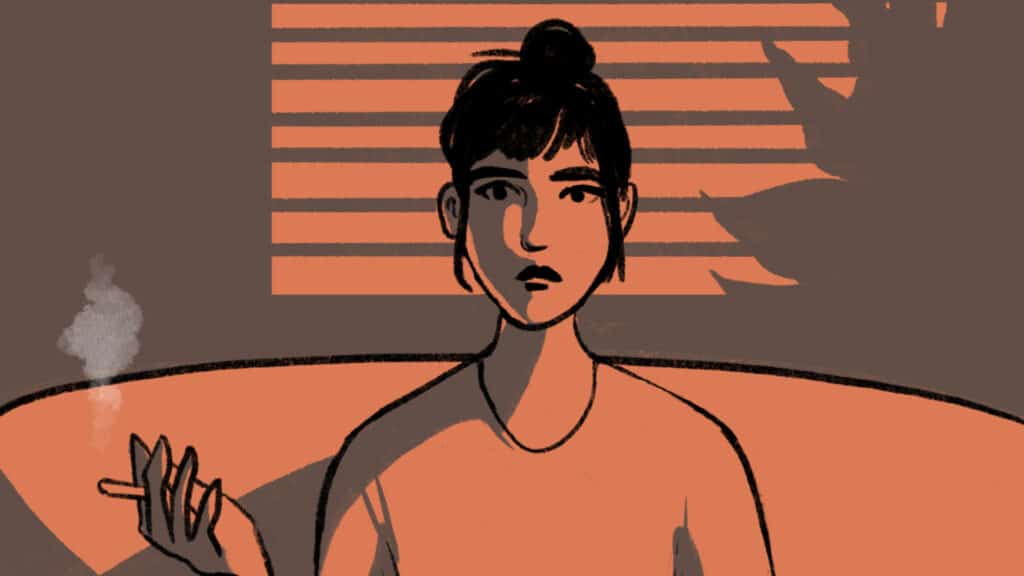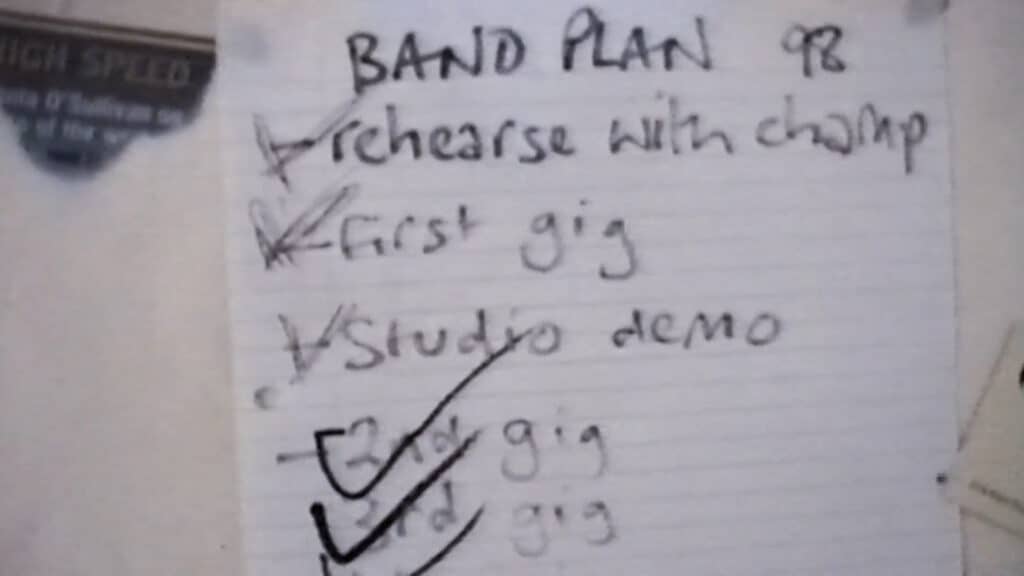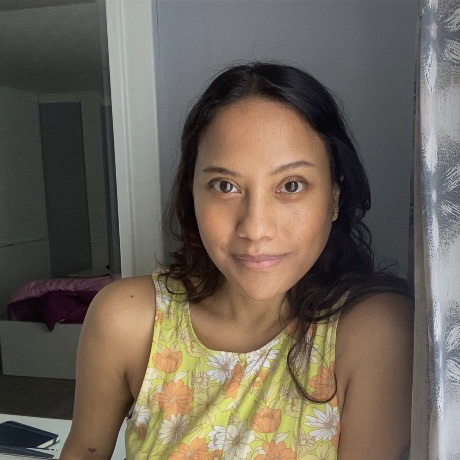Eat That Frog!
21 Great Ways to Stop Procrastinating and Get More Done in Less Time: A Book by Brian Tracy

The situation
When I was first getting started on my journey, a little over a year ago, I was listening to the School of Motion podcast regularly. I wanted to be a motion designer, and I thought that the best way I could start on this goal was to listen to successful motion designers and see how they had gotten into the business. What I found was fascinating — the most successful ones had become so by striking out on their own in distinctive, and yet immediately identifiable, ways. My time spent with it definitely warrants a post on its own, but I wanted to mention, specifically, the Ash Thorp interview.
It was a really great interview. Interviews conducted by Joey Korenman usually are — he's a very generous interviewer, open and perceptive, and he does his research. Ash Thorp has his own podcast (I haven't listened extensively), but as an interview subject, he is not shy in stating his opinions. This is a gift! It's very difficult to have an interview subject who isn't as forthcoming.
I'd love to deep dive into their talk at a later date, but there's a reason that this is the second book that I'm reporting on: Mastery by Robert Greene and Eat That Frog by Brian Tracy were two of the books that Ash Thorp said changed his process fundamentally.
I'm going to say these top three books. If you haven't read any of them and you're listening to this, seriously, go on Amazon, buy them used if you don't have a lot of money. Get the audiobook if you don't like sitting and reading. There's no excuse. You need to buy these three books. They're going to help you out a ton.
Ash Thorp, School of Motion podcast
I don't know if I would categorize myself as a "self-help book reader", but the genre does have a bad rap. And to be real ... there are a lot of people out there (ahem) who write stuff without providing any real value. That being said: I quit smoking cigarettes with the help of a book. I stopped drinking alcohol with the help of a book. I got over a bad relationship with the help of a book. All of these events were life-changing.
And I'm only about six months into applying this book's principles and processes. But I'll say this now: Read it.
The book
This is a slim book, just over a hundred pages long, that is packed with useful and actionable information. But before we get in too deep, let's address the "frog" in the room:
The first rule of frog eating is this:
If you have to eat two frogs, eat the ugliest one first.
The second rule of frog eating is this:
If you have to eat a live frog at all, it doesn't pay to sit and look at it for very long.
Brian Tracy, Eat That Frog!
Brian Tracy started out his career by dropping out of high school. He then worked on freight ships for eight years, traveling the world, before getting a job as a salesman, which he struggled with. It was at this point that he started casting around for a more genuine answer to the question of how to succeed.
I began to ask successful people what they were doing that enabled them to be more productive and earn more money than me. And they told me. I did what they advised me to do, and my sales went up.
Brian Tracy, Eat That Frog!
One of the main issues I have found with many self-help books is that they often promise an "easy" fix. What this book proposes is not, technically, an easy fix, but it is an easy(ish) process. (Better!) The caveat is that once you understand the process, you have to go and do it.
For instance, here is one of the first steps:
- Write down your goals for the year.
Okay, so ... what's the big mystery here? That's so obvious, you may scoff. This guy wrote a whole book about this?

Yeah, but how many people do you know actually have a written list of goals that they want to do? And I do mean "written." Mr Tracy's very clear about that.
When you write down a goal, you crystallize it and give it tangible form. You create something that you can touch and see. On the other hand, a goal or objective that is not in writing is merely a wish or a fantasy. It has no energy behind it. Unwritten goals lead to confusion, vagueness, misdirection, and numerous mistakes.
Brian Tracy, Eat That Frog!
I wanted to go traveling: I had always figured it would happen "someday", but something about hitting my thirties made me realize that I either had to do something about it, or it would never happen. I'll tell you this: the simple act of literally writing it down made me feel better. It was great.
The reader is then advised to break it down further, by identifying the steps or mini-goals they must make in order to accomplish the big one. Then they are told to prioritize their tasks. (This is a very sparse summary. You should read the book)
We proceed in an orderly fashion from there, but there is one important chapter that I also wanted to mention:
Chapter 12: Identify Your Key Constraints
Brian Tracy, Eat That Frog!
What does this mean? Well, it's one of those concepts that is easy to grasp, but somewhat more difficult to put into practice.
Imagine that you have been snowed in, and you need to go to the store. The snow has stopped, but it is piled very high on the ground, and your car is buried. What do you have to do in order to get to the store?
- Clear the path to your car
- Clear the driveway
- Dig out your car
- Drive to the store
These are mini goals, the tasks you must complete in order to achieve the main objective. A key constraint could be that you always need gasoline in your car in order to get to the store. In order to make sure you always have gas in your car, you must ensure that you have money to purchase it. In order to ensure that you have money, you need a job ...
But they aren't limited merely to the physical. They could be relational or mental, too. One of your key constraints could be:
I'm too depressed to leave my house.
Or:
I can't leave the house just now, because I have to watch my child.
Maybe one of your key constraints is:
I can't go to the store, because my boyfriend has told me that if I leave the house, he'll kill me.
Too much? Maybe, but I wanted to point out that it's very difficult to achieve anything if you have a person around who is like this. You cannot fly if there is someone tying you to the ground. If you are depressed, or if you have an untenable living situation, your immediate goal is to fix this.
I've known alcoholics who say that they could write a book, but they always put it off to the next day. Why do you think that is? Don't you think that maybe they should stop drinking? Address your big problems first.
If there was one core idea or point you could take away from the book, what would it be?
Just Do It.
Nike
That's it, that's the book.
What are some issues that could be present?
You have to get started. For so many people, that's the hardest part. A lot of us think that simply because we can visualize ourselves doing it — simply because we understand that it is possible to do — we rest easy. We know that we can do it, so we're not proving anything to ourselves. But what about proving it to others?
When you expend effort to succeed, and you're not used to it, it can feel horrendously vulnerable. I feel pretty vulnerable writing all this out, too, because I don't know where this will go. This blog could fail. But I don't exactly have an alterperson, because in order to have a blog, I have to write it. And I've found that, through writing it, it's not as bad as I thought it could be. With each post I complete, I prove something new to myself, and this is encouraging.
One other strategy that I've found is that if you just start making something, and it's absolute crap, you can usually push through, continue with the crap, and then all of a sudden you'll find that you have a wonderful non-crap idea. The first time this happens, it feels like magic. You're scraping along in the dirt and then suddenly, you find a diamond. It's really exciting!
Final Thoughts
A lot of us are used to our lives as they are — however they are. Unless things are really dysfunctional, we're often able to say that things aren't that bad, or at least, not bad enough to make some big changes. When you change things, you introduce an element of instability, and a lot of people aren't comfortable with that. Perhaps if we knew we could succeed before we started, we would feel more confident.
Success is Predictable
Simply put, some people are doing better than others because they do things differently and they do the right things right. Especially, successful, happy, prosperous people use their time far, far better than the average person.
Coming from an unsuccessful background, I had developed deep feelings of inferiority and inadequacy. I had fallen into the mental trap of assuming that people who were doing better than me were actually better than me ...
They were just doing things differently, and what they had learned to do, within reason, I could learn as well.
Brian Tracy, Eat That Frog!
We don't all begin on an even playing field, and the fact that Brian Tracy is a white man should not be ignored. But should this really change your own actions? You still need to put in the work. Some of us will have to do it longer and harder than others.
But we all have to start somewhere.

Hi! I'm Piya. I'm a freelance creative starting a new career, and I want to help you start yours, too.